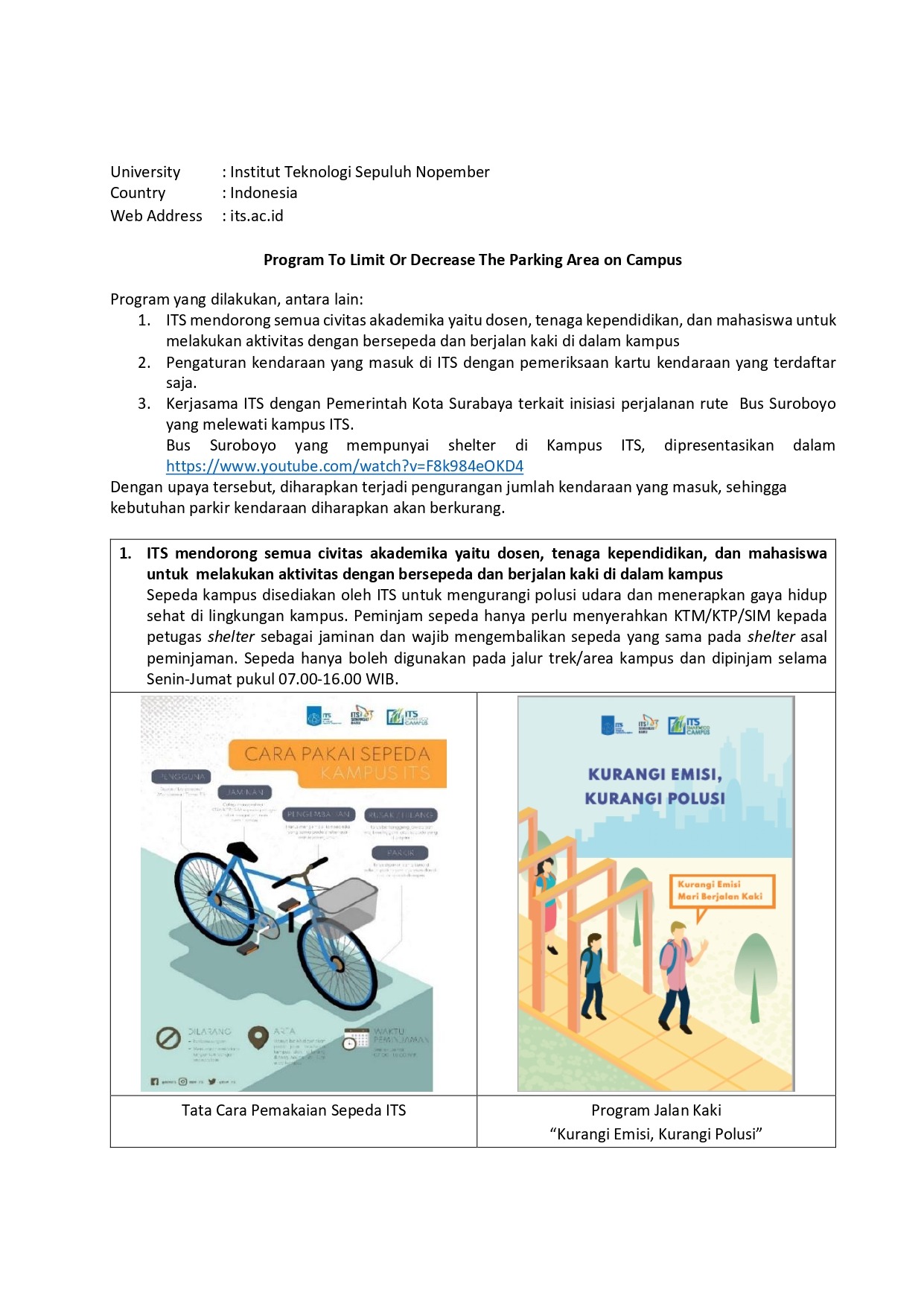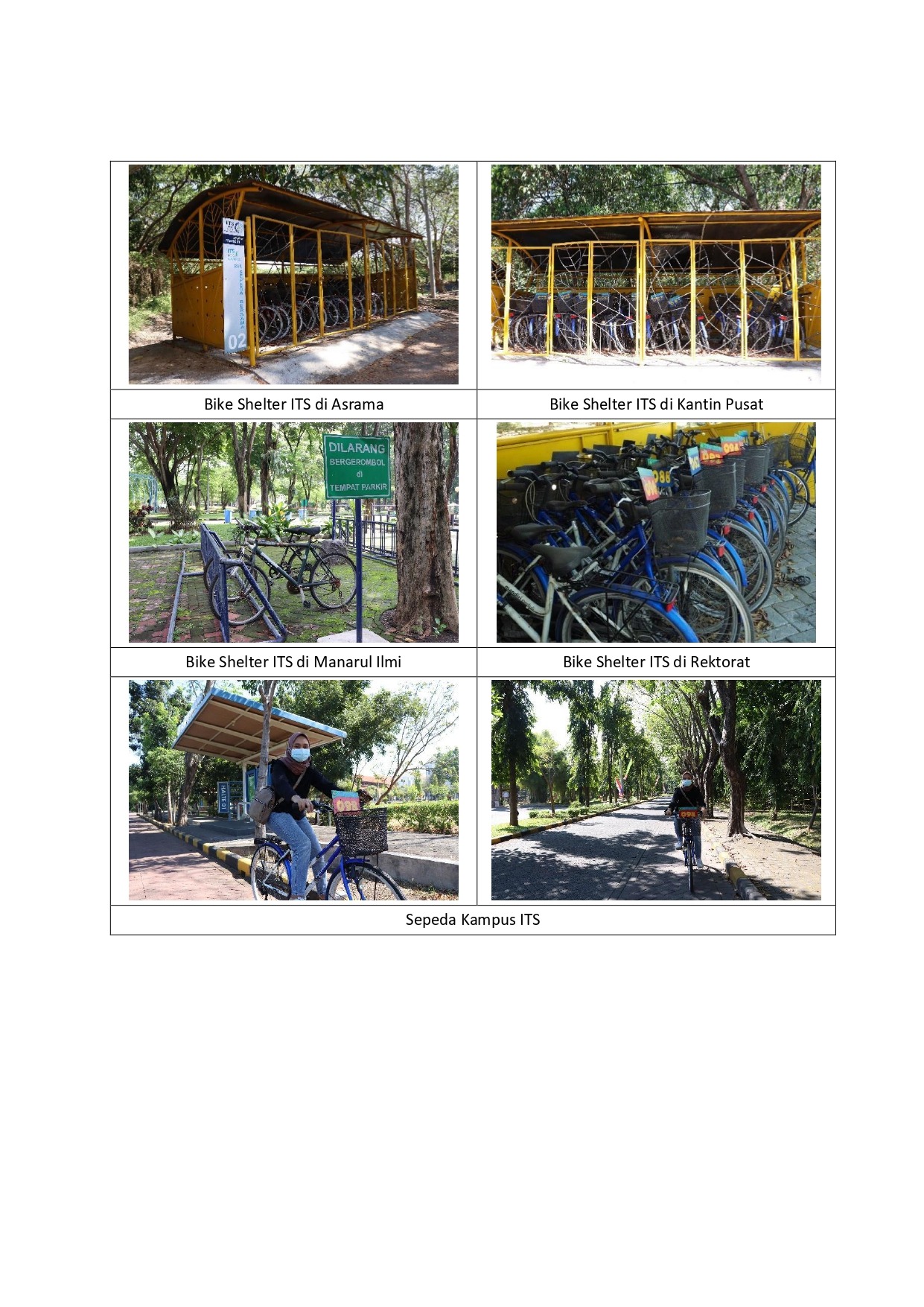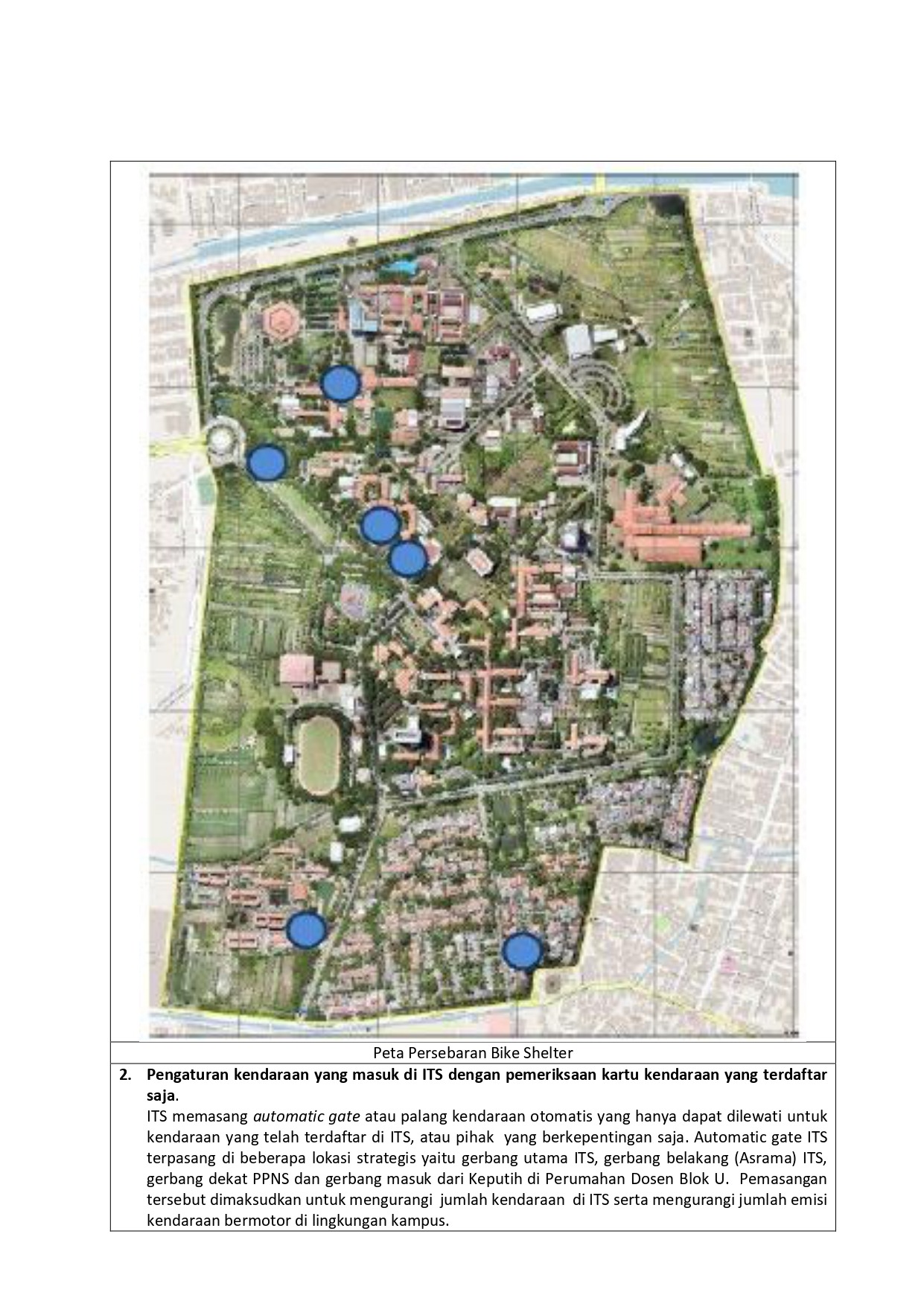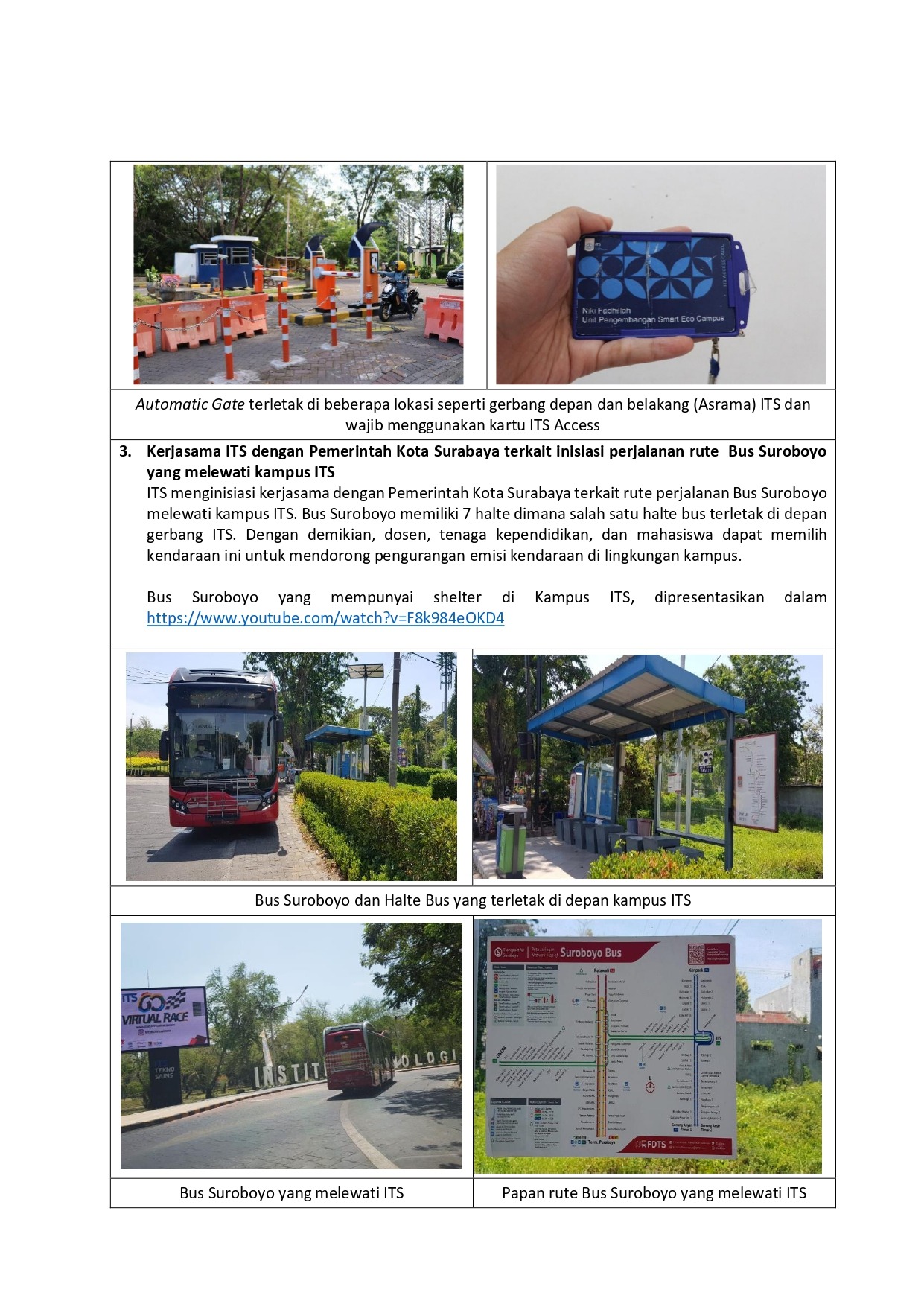Sustainable commuting programs include a variety of approaches such as public transportation promotion, carpooling, cycling, and walking. These initiatives reduce transportation congestion, carbon emissions, and the impact on natural resources. Communities may encourage a culture of sustainable commuting by investing in efficient public transit systems, making it both accessible and convenient for citizens. Sustainable commuting benefits not only the environment, but also public health and the economic burden associated with long commutes. It promotes physical exercise, reduces the health risks associated with air pollution, and lowers individual commuting expenditures.
ITS has a program that intends to reduce the number of motorized vehicles entering, hence reducing the need for vehicle parking. The following programs are in place to limit or reduce parking on campus:
- ITS encourages all academicians, including lecturers, education staff, and students, to participate in campus cycling and walking activities.
- Vehicles entered at ITS are arranged solely by verifying the registered vehicle card.
- Collaboration between ITS and the Surabaya City Government on the launch of the Suroboyo Bus route, which runs through the ITS campus.




